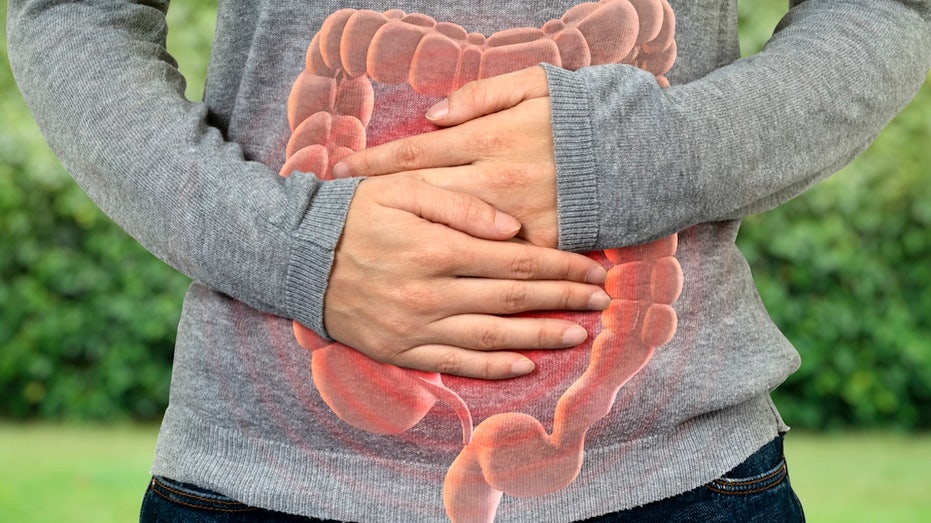Parkinson’s disease risk is linked to gut health, researchers say
Those who have had damage to the upper lining of their gastrointestinal tract are 76% more likely to develop Parkinson’s disease, according to research led by Beth Israel Deaconess Medical Center.

Gut health has been linked to a common neurological disorder in a new study.
Those who have sustained damage to the upper lining of their gastrointestinal (GI) tract are 76% more likely to develop Parkinson’s disease, according to research led by Beth Israel Deaconess Medical Center (BIDMC) in Boston.
The findings were published in JAMA Network Open on Sept. 5.
THE EFFECTS OF PARKINSON'S DISEASE ON THE BRAIN AND COMMON WAYS THOSE IMPACTED SUBDUE SYMPTOMS
The study included 9,350 patients (averaging 52 years of age) who underwent an upper endoscopy — a procedure that examines the esophagus, stomach and first portion of the small intestine — between 2000 and 2005 within the Mass General Brigham system.
Those who had "mucosal damage" were shown to have an elevated risk, the researchers found.
Parkinson’s disease was diagnosed an average of 14.2 years after the damage was detected, the study showed.
Mucosa, also called the mucous membrane, is the "soft tissue that lines the body's canals and organs in the digestive, respiratory and reproductive systems," according to Cleveland Clinic.
ALZHEIMER’S AND PARKINSON’S RISK IS HIGHER FOR PEOPLE WITH BODY FAT IN TWO SPECIFIC AREAS
"When asked, many of my patients with Parkinson's disease will say, ‘Come to think of it, yeah, I started to get bad constipation or nausea, years before anyone diagnosed me with Parkinson's,’" lead study author Trisha Pasricha, MD, a gastroenterologist at Massachusetts General Hospital and an instructor of medicine at Harvard Medical School, told Fox News Digital.
"We now know that gut symptoms like these herald a future diagnosis of Parkinson's disease."
Dr. Earnest Lee Murray, a board-certified neurologist at Jackson-Madison County General Hospital in Jackson, Tennessee, was not involved in the study, but confirmed that gastrointestinal dysfunction is very common in patients with Parkinson’s.
"Motor symptoms, such as stiffness, tremors and difficulty walking, are the stereotypical features of Parkinson’s," Murray said.
"However, there are several non-motor symptoms that are often seen, the most common being gastrointestinal dysfunction, especially constipation and difficulty swallowing."
These gastrointestinal symptoms can appear years before the motor symptoms, the neurologist added.
"Given the prominence of early gastrointestinal issues in Parkinson's, there has been a theory suggesting that the pathology that causes Parkinson's can originate in the GI tract and travel to the brain via the vagus nerve," Murray said.
"This study gives additional evidence to the ‘gut-first’ theory."
Many factors can cause damage to the mucosal lining, Pasricha said.
"Those include taking NSAIDs like ibuprofen, drinking alcohol, stress or bacteria like H. pylori," she said.
"Our study only examined people whose stomach symptoms were so severe that they sought an upper endoscopy to investigate the etiology, but we all experience small amounts of damage to our gut lining throughout our lives for various reasons."
It is not clear how those frequent, smaller amounts of damage impact the risk of Parkinson's, the doctor noted.
"Nonetheless, I advise my patients — regardless of their risk of any neurological disease — that minimizing NSAIDs, reducing stress and cutting down on alcohol will only help their gut health," she added.
As Murray noted, Parkinson's is caused by a depletion of the neurotransmitter dopamine — which leads to slowed muscle movements, stiffness and tremors — and is also involved in the integrity of the GI tract.
"As the study authors point out, we don't know if the injury to the GI tissue triggers a depletion in dopamine or if the destruction of the GI tissue is the earliest sign of an issue with dopamine that eventually leads to more stereotypical Parkinson's symptoms," he told Fox News Digital.
While the study reveals a "strong link" between injury to the upper gastrointestinal tract and later development of Parkinson's disease, Pasricha noted that the mechanisms leading to this effect are not yet known.
CLICK HERE TO SIGN UP FOR OUR HEALTH NEWSLETTER
The study did not include cases of Parkinson’s that were diagnosed outside the Mass General Brigham system, the researchers noted.
Due to the small sample sizes in the study — and the risk of "confounding variables" that could introduce a measure of bias — the research team called for additional studies to confirm the association.
"The brain-gut connection is really a two-way street," said Pasricha.
For more Health articles, visit www.foxnews.com/health
"The gut can exert an enormous influence on the brain in ways we are still only beginning to understand — but when we do, we might be able to open new avenues for early intervention and treatment strategies for many diseases."
The study was funded by grants from the National Institute on Aging, the American Gastroenterological Association and Harvard University.



